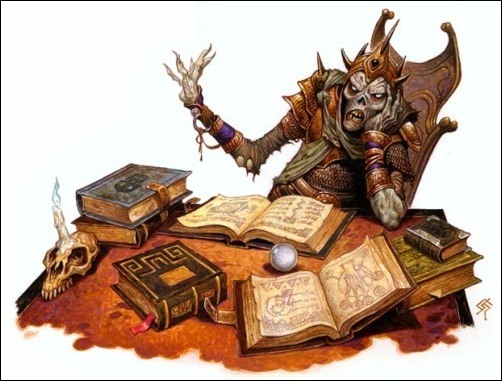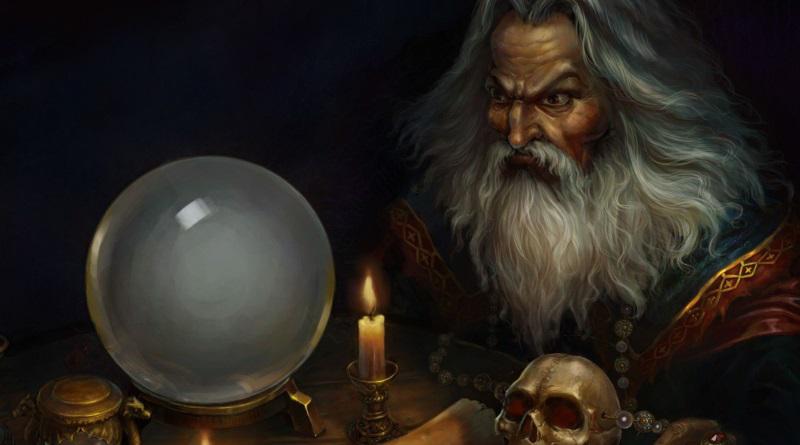“Perhaps it’s rude to notice when a wizard does something strange.”
— Donita K. Paul
OOOne of the things I love about the HERO System is that it is presented as both a toolkit and a system. You can change aspects of your games so that each feels different if you want. A lot of people have done some amazing things with that, but nobody has influenced me more than KillerShrike.
One of the goals I had when using the toolkit to design arcane magic use was to simulate a rigid, codified system of magic use. Though it will be the subject of a later post in greater detail, arcane magic has been studied, refined, and analyzed to the point of being more like a field of science in Trigate. This process of arcane magic use is known as the Duodenary Theurgic Matrix Process and allows a wizard to have a collection of magical effects at their disposal. It is the standard by which most wizards learn to practice arcane magic.
Go figure, huh? Who else but a collection of teachers and researchers could take something incredibly amazing and make it safe, repeatable, and allow wizards to remain sane.

AAArcane magic is built with the Variable Power Pool power framework that is bought as a “Theurgic Matrix”, so a Pyromancer’s would be generally called a Pyrotheurgic Matrix for example. I’ll get into the full mechanics of that in another post, as today we’re focusing on the limitations built into this and how it offers options and considerations around spellcasting.
When the Theurgic Matrix is bought, it must be bought with the following limitation in addition to any others:
To those unfamiliar with the HERO System, let me explain. When powers are built, it is done in three steps:
- Build the actual power. The cost is associated with how the power is built.
- Add advantages, things that change the power as-built positively. This adds to the cost.
- Add disadvantages, things that limit or change the power as-built negatively. This reduces the cost.
The limitation above is purchased on the power framework that holds the other powers, so it affects both the power framework and powers within.
In this case, the limitation is that a certain number of other limitations must be taken, from a specific list, that adds up to a maximum value.
How does this look in play, though, and what kind of choices does it allow (or force) players to make?
When a player casts a spell they will have to take some of the limitations listed and apply it. So when a spell is cast, the wizard can:
- Extra Time: Take longer to cast the spell than normal. This can represent the wizard taking their time to get the spell just right before releasing it upon the world.
- Gestures: Require the use of both hands to cast the spell. The movement of the hands and arms in symbolic patterns can assist in the spellcasting process. Some theorize this takes stress off of the mind of the wizard as it feels as though said gestures are being done via muscle memory.
- Incantation: Require vocalization to cast the spell. The actual phrases or utterances differ between cultures, schools, and beliefs. Vocalizing throughout the casting of the spell makes the process easier.
- Focus: Require some sort of material component that is consumed upon casting the spell. This allows the wizard to use a resource as fuel to assist in the casting of the spell.
- Required Skill Roll: Focus on the theorems and treatises of your specific wizard college. This is to simulate drawing on the wizard’s knowledge of spellcasting to overcome difficult feats.
- Increased Endurance Cost: Make the spellcasting process more taxing on yourself. This makes the casting process more tiring, depleting the wizard’s resources quicker.
Is the wizard bound and gagged to a chair? Well, incantation and gestures are out. You could still cast the spell though, perhaps by making it more tiring and taking extra time to do so. Need to get the spell cast in a hurry? Sure, burn off a focus and deal with the increased endurance cost.
It may not seem like much, but players I’ve had who have played wizards seem to enjoy it when it comes into play.
It also allows me to expand on some worldbuilding possibilities as well. Maybe the character cannot speak or comes from a culture where arcane words are taboo? I’ve had players who wanted to play characters more akin to sorcerers in Dungeons & Dragons, having a more innate ability with no proper training. One player opted to get rid of the possibility of requiring a skill roll, another made it so the skill roll was required by adding it as a separate limitation and having a low skill value associated with it. Failing with flavor, they called it.
We can also expand on it. Though it may not be standard practice, there are worlds where wizards can consume dangerous things to aid in the spellcasting process while harming themselves. Toxic potions, poisonous insects, or drugs of some sort. Maybe instead of material objects, they have tattoos they can call upon to assist in spellcasting but their use locks out that spell from being cast again for some time.
I had a player once who wanted to have it where their spellcasting would be incredibly perceivable as a limitation; bright flashing lights, loud noises, and terrible odors. The said player thought using that limitation was a good idea while traveling underground in a large cavern. Things tend to be attracted to loud noises and bright lights.
“I know it might be funny, but when a wizard starts hopping around, waving his arms and shouting nonsense – that’s the proper time to worry.”
— Edelia Jamúdez Terroja Nagesti of Yanning, Danzaraña Spiderfolk Pyrotheurgy Professor
